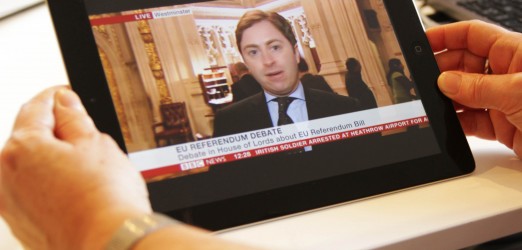Many of us in PR wonder what goes on at TV editorial meetings. Who attends, what is discussed, what angles there are and the million dollar question; how do editors decide on the stories they want to broadcast.

As former broadcast journalists here at Shout! Communications (I came here from the BBC for example) we can lift the shroud of secrecy from the meeting rooms and give insight into what really goes on.
Editorial meetings happen every day. They bring together journalists and editors who collectively decide what the news agenda will be. Each programme will have their own meeting but in larger organisations there is often a late morning meeting with all strand editors, planning and news desk teams and editors from the main news programmes. A bit too much jargon for you?
The simplest one to explain is a strand editor who is a journalist looking after a specific story area. Our editors will have much bigger remits, for example, there will usually be an editor with overall responsibility for the areas of health, business, technology, politics, science, current affairs and legal, education, arts and entertainment and sport. Smaller broadcasters may amalgamate these teams but they still need to someone who will ensure that the stories and material their specialised teams are working on is widely distributed across the station.
Planning editorial teams will pull together all the stories that they feel are editorially sound and interesting into one place – either a prospects list or a diary. This is accessible to all the editorial teams. Often planning desks will also be involved in logistics for broadcast coverage such as assigning satellite trucks or broadcast kit, camera crews and producers to stories. All this information is discussed on the day and put forward to editors in the morning meeting. They can then pick and choose what works best for their programme.
The news desk team will help programmes with any additional material and resources they want sourced for a story they are planning to cover. News desk journalists will also keep across breaking news stories to make editors aware of them and also of any new material or fresh story lines for on the day stories.
The TV meetings are the opportunity for journalists to come together, look at the planned stories for the day and talk about other stories they have seen in the news. All journalists will come to the meeting with story ideas and pitch these to editors. As broadcast PR experts we know that for TV you need a story with a strong news hook, a case study and relevant spokespeople and pictures! TV, for obvious reasons, loves pictures. B-roll is a very useful resource and can sometimes help clinch broadcast coverage for your story. But a word of warning – any content given to broadcasters needs to be of the highest quality and follow a news style.
At Shout! we have a video production team made up of experienced camera crews and producers who have worked in news. We know what TV broadcasters expectations are for video content and always produce material to the highest standard. A recent Shout! campaign supporting English Apples and Pears saw us secure extensive coverage for the client across regional and national TV. B-roll we shot was also used by broadcasters such as Sky News and BBC Breakfast.
Written by Keren Haynes, Joint MD of Shout! Communications
If you want your next story to make the planning meetings of national and regional TV news broadcasters give us a call to chat through your campaign on 020 7240 7373. Or email hello@shoutcommunications.co.uk.
There’s more information about broadcast media relations in our Resources section: download our E-book: “Media Relations Guide” here



